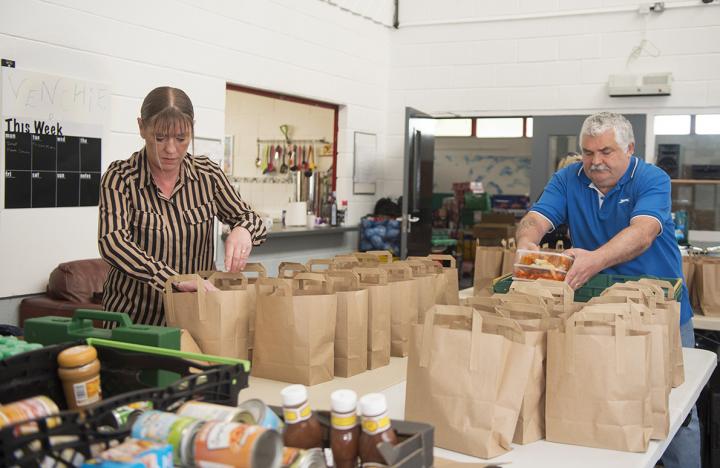We will work together with local communities
As Scotland’s original civic university, we give special importance to how we engage with the City and its neighbourhoods.
The University’s Community Plan 2020-2025 sets out 32 practical commitments is making to our local communities over the next five years.
The University’s Strategy 2030 places social and civic responsibility at the forefront of our ambitions. Coupled with the University’s investment as a result of the Edinburgh and South East Scotland City Region Deal, Strategy 2030 will allow us to scale up our community engagement activity and partner with community groups more effectively going forward.
Social Impact Pledge
The University was one of the first Universities to sign up to the Scottish Government’s Social Impact Pledge, an initiative asking public sector organisation across Scotland to commit to increasing their social impact by making a public commitment to changing three aspects of their current operations or policies.
In 2020, the University renewed its commitment to increasing our social impact for the third year. Working with community partners, we have made three sets of pledges so far on the themes of literacy, digital skills, homeless health and inclusion, and student social enterprise.
The Centre for Homelessness and Inclusion Health at the University has a research focus on the multiple and complex ways that health care professionals, homelessness services and people who experience homelessness interact to improve or limit health care outcomes. This year, the Centre has worked with Street Support to implement an app based digital information resource for homeless people in Edinburgh, as part of its response to the inevitable increase in homelessness following Covid-19. Staff and students delivered an art project with people experiencing homelessness with Streetwork and the Salvation Army, using art as a therapeutic process.
Community grants
The Community Grants Scheme is part of the University’s wider strategy to make a positive social impact locally through connecting staff and students with opportunities to volunteer for grass-roots projects and widening access to formal and informal learning opportunities.
Projects supporting those most severely affected by the Covid-19 pandemic in Edinburgh and the surrounding areas have been awarded funding from the University.
Awards of £5,000 from the University’s Community Grants Scheme were made to projects that aim to deliver thousands of free meals, provide music therapy workshops for unpaid carers, deliver computers to vulnerable families, and provide isolation and mental health support networks.
Since 2017, we have provided more than £300,000 to 79 incredibly worthwhile community projects across the Edinburgh City Region through the Community Grants Scheme.

The Venchie Children & Young People’s Project is one recipient of the fund. Set up to provide children and young people with a range of play, recreation and issue-based youth work, they now offer an emergency food service to families in Craigmillar, cooking and delivering 600 meals a day, six days a week.
Delivering positive impact in the local community
A Community Benefits in Procurement Policy was developed with the aim to embed and implement community benefits into its procurement activity by working with suppliers and industry partners. This has resulted in the University working with organisations such as Balfour Beatty to provide surplus IT equipment to local charities, donate to families involved in the Syrian Futures Project and co-fund a learning programme at Castlebrae High School which aims to create and inspire the next generation of Built Environment professionals.
The University’s Museums work with other University Museums in Scotland on the Capturing Lives in Scotland’s Communities Project. This online art project worked with 11-18 year olds, particularly those from widening participation backgrounds, to help them complete the required activities for the Arts Award Explore qualification. They took part in weekly art activities inspired by the Universities’ collections and online discussion groups. 84 participants achieve the qualification, including 75 per cent from those from widening participation backgrounds.
A new community choir, BioRhythms has been set up based on the BioQuarter campus. Membership includes people from across the BioQuarter community, including the University and NHS, as well as people from the hospital and local residents. Studies have shown that singing strengthens the feeling of togetherness, regulates the heart rate, reduces stress levels and depression and improves feelings of social wellbeing.
Case studies
University supports local action through emergency micro-grants fund
Centre for Homelessness and Inclusion Health

